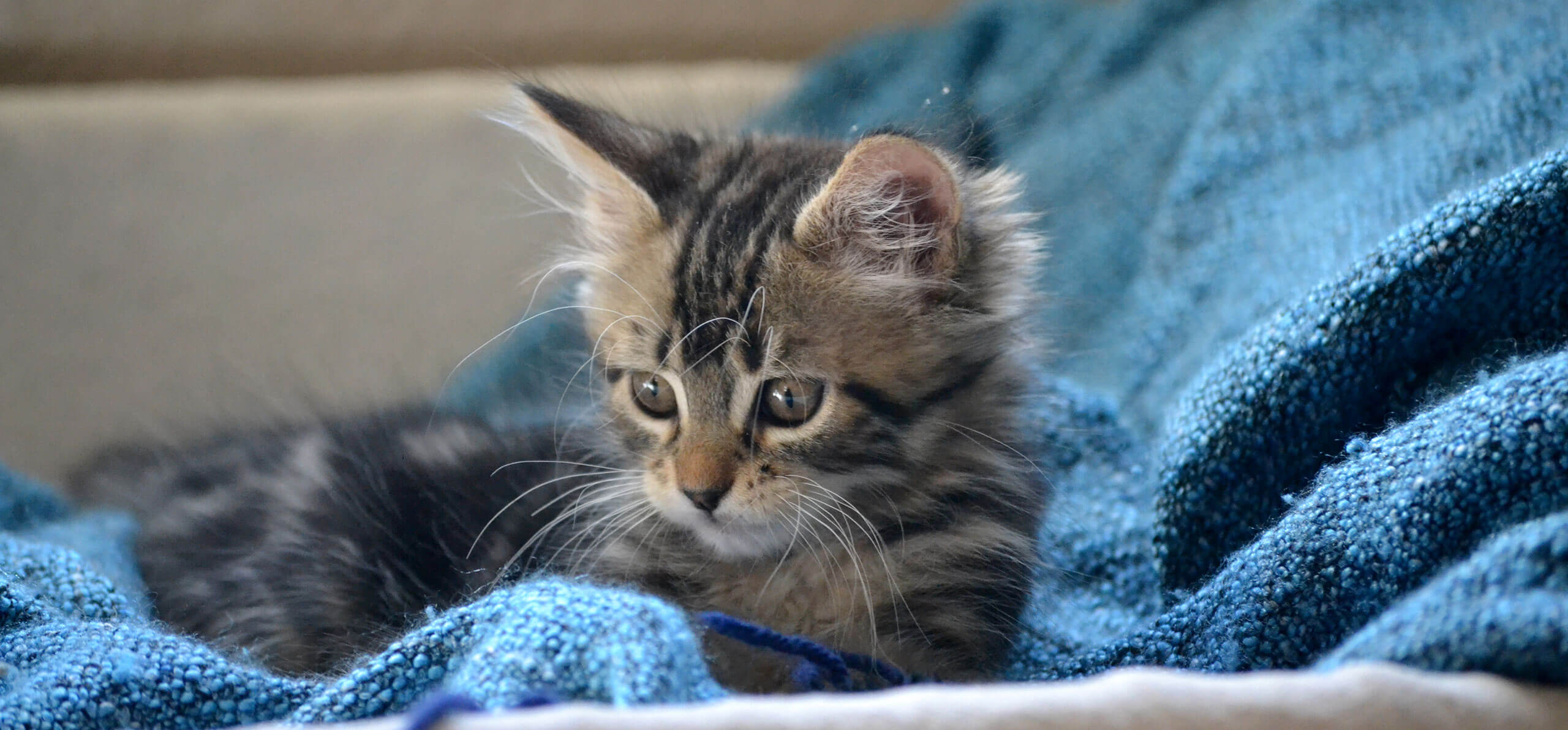In order to keep your new furry family member safe inside your home, you’ll want to kitten-proof your place before you bring the fluffball home that first day.
While many things may not scream “potential danger,” you can prepare your home with a few universal safety tips.
Before the newest member of your family comes home, walk through your house. Try to think like a cat and look for potential dangers: enticing dangling items, objects that aren’t secured in place.
Look for common household items that could possibly pose a threat, such as…
Object to art?
There’s something about fragile (yes, often pricey) objects that make them cat magnets. Whether kittens bat them off a table with their paws or knock them over with their tails, if you aren't careful where you display your valuables they may end up broken. Remember, cats love to jump, so even objects high on a shelf aren’t necessarily out of reach.
No strings attached
When we teach our kittens to play with strings, it’s no wonder they become attracted to things like wires and cords. Whether they hang on electronics or cling to a string dangling from a window blind, be sure to tie back all loose items that may entice kittens.
Other potentially dangerous items: tissues, paper towels, toilet paper, pens, pencils, rubber bands, hair ties, jewelry, balloons, shoe laces.
Batten the hatches
Kittens often wedge themselves in small spaces like drawers, cabinets, even dryers. As you move throughout your day, be sure to close items immediately after opening them and always double check to make sure you haven't locked kitty in.
Secure screens
If your kitty likes to watch the wildlife outside, she’s bound to bat at window and door screens. Be sure all screens are secure so they don’t pop open and give your kitten free-range roaming rights.
Chemical lock-boxes
Like any child, kittens should be kept away from all medications, cleaners and chemicals. Place these items in locked cabinets well out of paw’s reach, inside and outside your home.
Red-flag greenery
Just as we like to eat our veggies (well, some of us), cats like to chew on grass and plants. Some plants are poisonous to cats, whether they’re kittens or adult felines. For example, keep lilies, aloe, American holly, California ivy and many other popular plants out of your kitten’s reach.
Read more about the Top Ten Poisonous Plants.
AND be sure to keep the animal poison control hotline handy: (888) 426-4435. (There may be a fee charged.) Plus, always contact your veterinarian if you suspect your kitten has gotten into anything toxic.
Once your home has been checked for the basics, introduce your new furry family member cautiously. Keep a watchful eye on her as she explores and becomes more comfortable in the space.
Once you see your curious kitten in action, you’ll undoubtedly notice a few new red flags unique to your space. See what kind of trouble she gets into and address those issues as they arise.
Before you know it, both you and your kitten will be well on your way to a happy, safe and secure life together.

